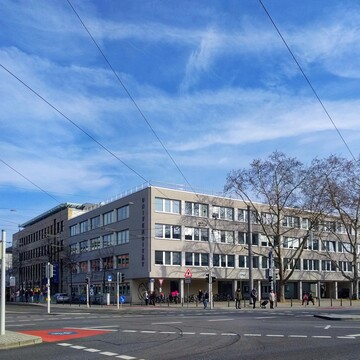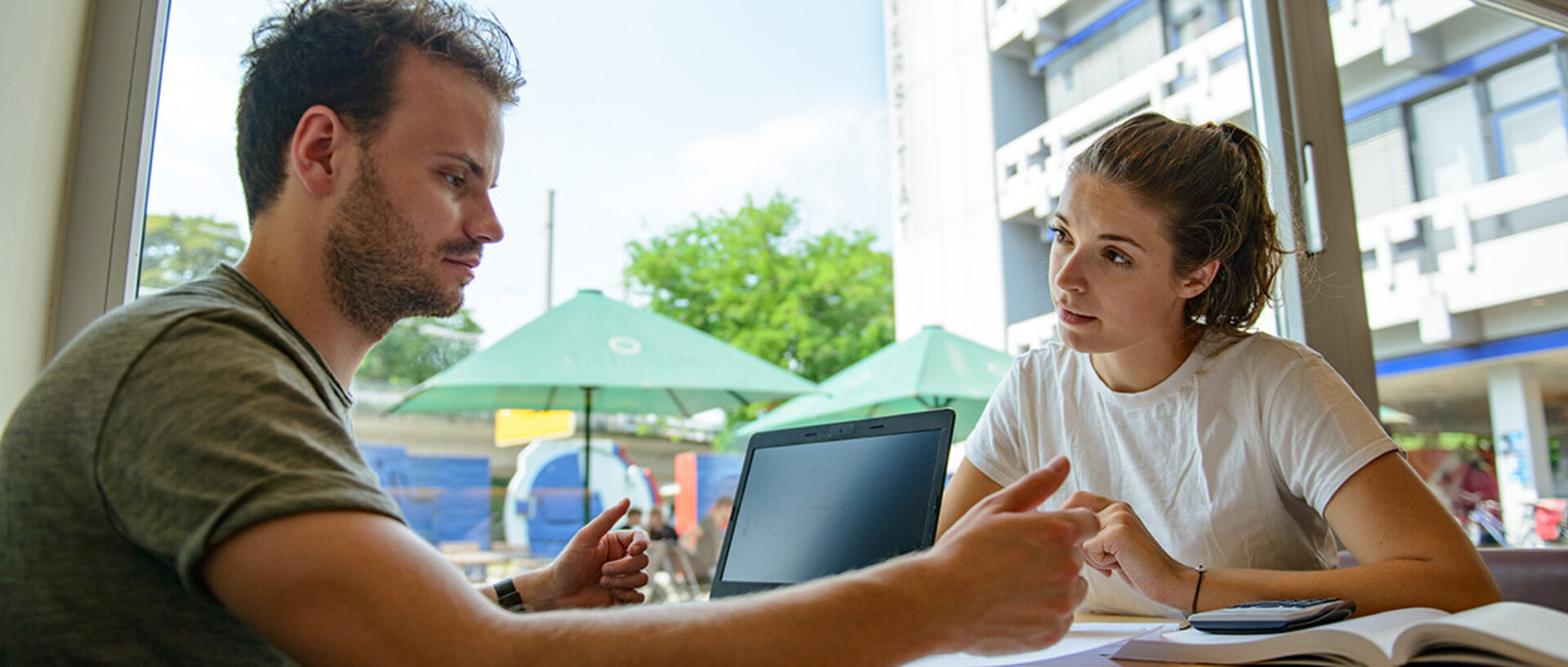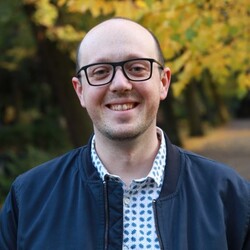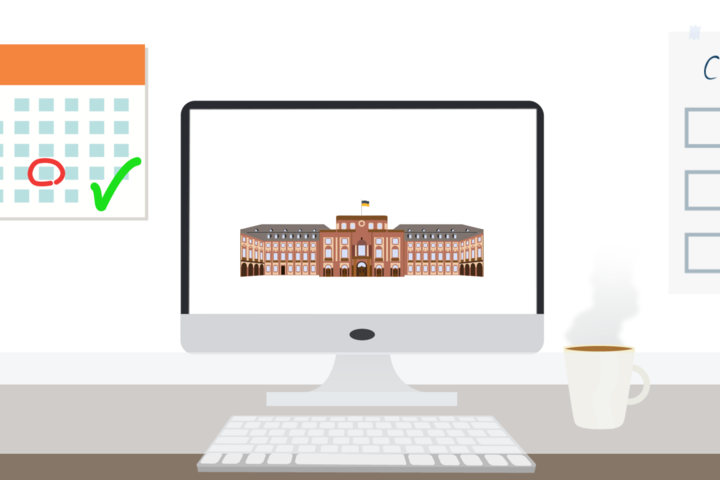Bachelor's Program in Political Science
Obtain your degree with a career-oriented and international program
The bachelor’s program in Political Science at the University of Mannheim provides you with a solid foundation in the field. It comprises basic and advanced modules, which teach students research methods as well as subject-specific skills in three areas of study:
- International Relations
- Political Sociology
- Comparative Politics
Courses from the International Relations modules focus on European integration, theories of international relations, and different areas of international cooperation as well as on conflict research. If you want to learn more about the research area Human Rights and Conflict Research, please watch the interview with Professor Sabine Carey, Ph.D. (in German).
Political Sociology looks at the interrelationship between politics and society in Europe. The focus is on voter behavior, political participation, political psychology, political communication and theories of political decision-making.
In Comparative Politics, students will compare political institutions in different countries and gain a profound understanding of them. Coalition governments, legislation, elections, and processes of democratization are of particular interest in this area.
The Program
In addition t the core subject, the bachelor's program in Political Science taught in Mannheim comprises supplementary modules, including the Career Development Module (including a mandatory internship), the Social Skills module, and the minor. Take advantage of the program's interdisciplinary approach to hone your individual profile.
What is special about the Mannheim program in Political Science?
Political Science at the University of Mannheim
Political Science in Mannheim is all about political processes. This includes analyzing political systems, explaining political decisions, studying political actors, and calculating election results. Research at our department covers a variety of areas, including:
- European integration
- Political violence and civil wars
- Globalization
- Political communication
- Political participation
- Voter behavior
- Parties and political culture
- Political actors and institutions
- Election systems and development of democracy
- Political economy
In addition, the Department of Political Science has earned an international reputation for its strong focus on empirical-analytical research using quantitative methods, such as computer-assisted data analysis. That is why we offer special courses that allow you to practice carrying out your own research projects. Among other things, you will learn how to develop a concept for a survey, draw up questionnaires, devise measuring instruments, and set up research designs and schedules. The practical implementation of your study, such as data collection and analysis, is also part of these courses.
What are quantitative research and quantitative methods?
Empirical social research involves the systematic collection of data on interdependencies in society by means of observations, interviews, and experiments. These data are analyzed using various statistical methods.
Quantitative methods employed in empirical social research comprise all procedures that enable the numerical representation of empirical facts. This also extends to drawing conclusions from empirical findings with the help of statistics. Quantitative methods include sample selection, data collection, and data analysis, for example, and can either be used to test the validity of previously proposed hypotheses or may result in new hypotheses.
During the program, you will take courses from the basic modules in Methods and Statistics I and II, which cover the following topics:
- Survey design
- Development of questionnaires, measuring instruments, and research designs
- Data collection in practice
- Data analysis using simple and complex statistical methods
In the advanced module, you will attend exercise courses in methods requiring you to carry out your own research projects.
Studying Political Science in a practice-oriented environment: the Career Development Module
The Career Development Module comprises three parts:
- Political Science and Career Development I (lecture)
- Mandatory internship (six weeks)
- Political Science and Career Development II (exercise course)
In the lecture, the Internship Office of the School of Social Sciences will inform you about job opportunities for political scientists and bring you up to speed on how to write an application. Companies from the business world and employers from the private and public sector are regular guests to talk about career opportunities and their own career paths.
You will complete the six-week mandatory internship in a sociological field of your choice. Our Internship Office will be happy to help you find a suitable placement. It also regularly informs all students at the School about vacancies such as internships and part-time student jobs via its newsletter and internship database.
In the exercise course, you will discuss the experiences you have gained during your internship with your fellow students, and together you will research master’s programs offered by universities in Germany or abroad and find out about how you can start a professional career right after graduation.
Develop your personal competencies: Social Skills courses
The Social Skills module offers a range of practice-oriented courses that complement your core subject and the minor. It includes courses on presentation techniques, software and statistics applications, media, and foreign language skills, which are taught at the Center for Development of Key Competencies (ZfS). The interdisciplinary approach inherent to this program of study perfectly prepares students for the demands of a constantly changing job market. During the program, students are required to complete two courses from the Social Skills module. They can choose to focus on software, presentation, communication and media skills, and/
or learn a foreign language. Thinking outside the box: the minor
Your minor (approx. 32 ECTS credits) allows you to to gain expertise in another subject, which makes you fit for interdisciplinary work. You can, for example, benefit from the renowned programs in Business Administration and Economics taught in Mannheim or you can choose Sociology, Psychology, or Public Law as a minor. At the School of Humanities, you can take English and American, German or Romance Studies (French, Italian, Spanish), History, Media and Communication Studies or Philosophy. It is also possible to opt for Informatics or Mathematics. Please note that you will choose your minor only after you have enrolled at the University of Mannheim.
Get information about the program directly in your inbox
Register for the information mailing about the Political Science degree program free of charge and without obligation.
Advisory services
Do you still have any questions? We are happy to advise you!
If you have any questions on your degree program (course contents, program structure, stays abroad), don’t hesitate to contact our program managers. If you have questions about the application process, please contact the Admissions Office.

Florian Dorner (he/him)
School of Social Sciences
A 5, 6
Building A – Room A 414
68159 Mannheim
Please book an appointment:
https://www.sowi.uni-mannheim.de/online-beratung/florian-dorner/

Admissions Office
L 1, 1 – Room 157, 158
68161 Mannheim






